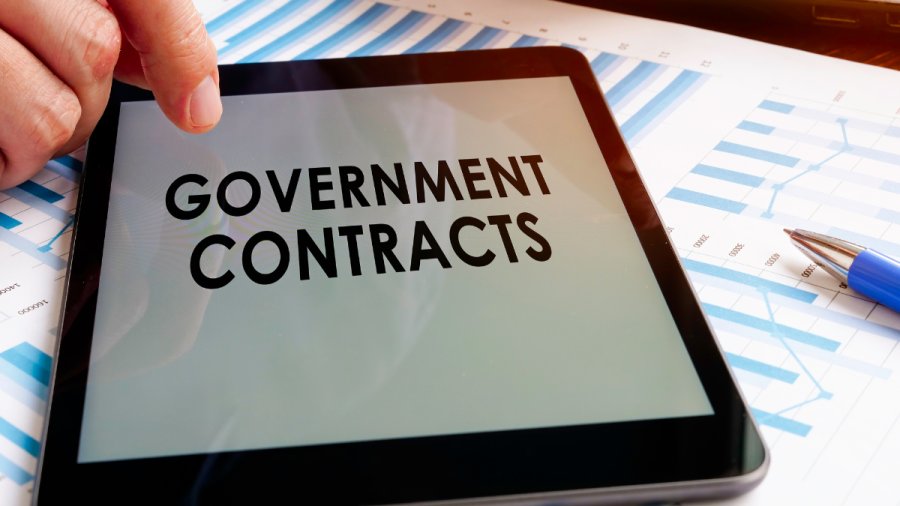Our team of specialist tender writing consultants have proven experience in winning government contracts across a range of industries.
Winning UK Government Contracts
Most central government contracts in the UK are overseen by the Crown Commercial Service (CCS), whilst local government contracts sit usually with the individual authority or council.
When responding to their opportunities you will need to demonstrate that your offer is precisely aligned to their requirements and is better than that of any large corporate that could potentially be better resourced or perceived as lower risk.
Government budgets (both central and local) are under increasing pressure, yet there is still need to deliver a quality service to meet the needs of the local population.
Social value is high on the agenda of any government procurement exercise and a key aspect (now 10%) of their tenders; as a result, your offer must deliver outstanding quality, improve the lives of people in the local community and represent excellent value for money.
Government contracts cover a huge range of UK wide products and services and as such can provide solid opportunities for your business to grow. Just some of the products and services tendered for include:
- Architecture and design
- Building materials
- Business process outsourcing
- Catering
- Cleaning
- Construction
- Defence
- Digital services
- IT and telecommunications services
- Planning
- Printing
- Recycling, rubbish and waste management
- Recruitment
- Repairs and Maintenance
- Security services
- Social care
- Transport

Top tips for winning government contracts
1. Spend time reviewing how the contract is structured
Is the tender split into different lots or regions or are is everything grouped together? If they are grouped together you will need to be sure you can deliver against all the requirements. Can you demonstrate excellent value for money and volume efficiencies if you are awarded the whole contract? If you decide to bid for one of two lots, are you able to demonstrate that you can provide better value than a business responding to all lots?
2. Ensure you read all of the tender documents
When you download the documents from the portal there will often be numerous files so you will need to make sure you read them all carefully to understand what the CCS are looking for. If you find that you don’t have everything you need, is this something you should be looking to invest in so you can tender for future similar opportunities? Some items are an absolute pass/fail so check carefully and be clear on what you must have.
3. Give quality assurance
The CCS are risk-averse so it is crucial that you are able to provide the assurances and case studies to confirm that your product of service will deliver and is of high quality? The CCS will want to know what systems and processes you have in place for dealing with any problems or complaints when they do arise.
4. Manage the contract effectively
If you are successful and win the contract there will be regular communication between yourself and the CCS so it’s vital that within the tender response you demonstrate robust contract management processes with a clear organisational structure and corresponding lines of communication. Where possible you will want to detail how experienced your key personnel are at handling this sort of contract.
5. Make sure you have strong plans, policies and procedures
What plans, policies and procedures do you have? Are they up to date and reviewed regularly? How are they communicated to your staff? How do you inform them of changes? The CCS need to be sure that the service or products delivered are done so to the highest standard with minimal risk to employees and the general public.
6. Demonstrate that you will deliver continuous improvement
The CCS want their suppliers to deliver over and above the specified services so they can deliver a better service for their own customers, users, citizens etc. You will often see questions within the tender that ask you to demonstrate what you can do to enhance the contract.

Government contract issues to bear in mind
1. Social Value
Improving the economic, social and environmental well-being of the local community is of high importance to government organisations and departments so your tender response will need to demonstrate the benefits your business will provide in these areas. Take into consideration the value of the tender but think about what you can offer in terms of local employment, apprenticeships, volunteering, local business support, and environmental and sustainability commitments. What can you offer as a local SME that a large corporate can’t? This can be a key differentiator and is now (more often than not) worth 10% of a tender score.
2. Local issues
Similarly, demonstrating in your tender that you have a better understanding of local issues than other bidders is a key area where an SME can really differentiate themselves from larger competitors. What can you demonstrate in your tender that shows you have a better understanding of the authority and local community issues than any other bidder? Are there key demographics you can include? Are there specific issues with parts of the local community that your business knows about and has experience in dealing with? Show the preventative measures you have put in place. Show how you engage with the community to reduce the impacts on government resources.
3. Value for money
Budgets are tight, so government tenders will be structured to ensure they are getting value for money. Can you demonstrate how you can help reduce costs or increase efficiencies without affecting the level of service? Show the real figures from your previous experiences. How did you save your other government customers money over the course of their contracts? As a smaller business, you will also need to differentiate yourself from a bigger bidder that expects to achieve volume efficiencies (e.g. bigger company can buy in bulk). What evidence do you have to counteract that argument? Can you show that actually, on balance, your smaller business delivers much better long-term value?
4. Provide evidence
The government organisation or department will want to be certain that you have the skills and experience necessary to provide the service requested. Wherever possible, include facts and figures from where you have successfully delivered similar services to other customers in the past. Up to 3 relevant references are usually required in the selection stage of government tenders. To provide the additional assurances needed, use case histories and testimonials with information on mobilisation, resourcing (detailing staff qualifications and experience), timescales, communication, and results/outcomes.
5. Step by step process
Government tenders often ask you to describe the step-by-step process you would follow in everyday operations in order to meet the requirements in the specification. You need to demonstrate that you have a repeatable, monitored process that meets every requirement. Start putting together (simple) process flows if you don’t already have them covering your service from end-to-end. How do you receive a work request? What happens to it then? How does it flow through your business? What technology do you use to track your processes? Make sure you use the same terminology as that used in the specification e.g. are the end users described as clients, customers, residents, patients, service users or something else?
If you need any support ensuring you are ready to respond to tenders, get in touch. Our experienced team can support you establish where you are and what gaps you may have through our tender-readying service.
Ready to respond to a contract opportunity? Our tender writing services can support you, click here to find out more.



